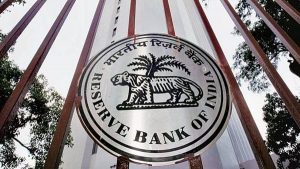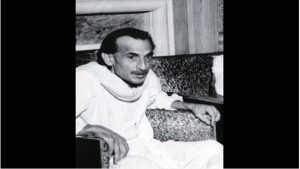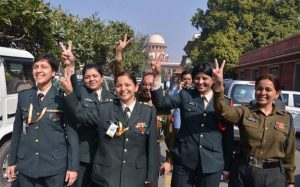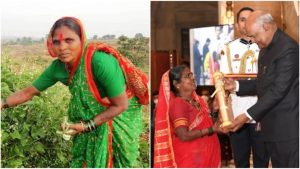Today Current Affairs: 15th November 2021 for UPSC IAS exams, State PSC exams, SSC CGL, State SSC, RRB, Railways, Banking Exam & IBPS, etc
Table of Contents
Digital Atlantic Charter Initiative:

U.S. Air Force Brigadier General Robert Spalding has announced the Digital Atlantic Charter initiative, a public-private effort focused on safeguarding democracies worldwide.
- It is created in the spirit of the Atlantic Charter and following the recent AUKUS trilateral security partnership between Australia, U.K. and the U.S.
- The initiative supports countries in every region of the world as they work to protect and ensure the resilience of their critical infrastructure.
- The initiative provides policy advice, an investment vehicle and a technology development platform to help government agencies and commercial entities counter digital authoritarianism
- President Joe Biden and British Prime Minister Boris Johnson has recently inspected documents related to the Atlantic Charter, a declaration signed by British Prime Minister Winston Churchill and U.S. President Franklin D. Roosevelt in August 1941.
- The two leaders plan to sign what they’re calling a new Atlantic Charter, pledging to “defend the principles, values, and institutions of democracy and open societies.”
About the Atlantic Charter:
- The Atlantic Charter was a joint declaration issued during World War II (1939-45) by the United States and Great Britain that set out a vision for the postwar world.
- First announced on August 14, 1941, a group of 26 Allied nations eventually pledged their support by January 1942.
- Among its major points were a nation’s right to choose its own government, the easing of trade restrictions and a plea for postwar disarmament.
- The document is considered one of the first key steps toward the establishment of the United Nations in 1945.
Customer Centric Initiatives Of The Reserve Bank Of India:

Prime Minister Shri Narendra Modi will launch two innovative customer centric initiatives of the Reserve Bank of India on 12 November, 2021 at 11 AM via video conferencing. These initiatives are the RBI Retail Direct Scheme and the Reserve Bank – Integrated Ombudsman Scheme.
- RBI Retail Direct Scheme:
- The RBI Retail Direct Scheme is aimed at enhancing access to government securities market for retail investors.
- It offers them a new avenue for directly investing in securities issued by the Government of India and the State Governments.
- Investors will be able to easily open and maintain their government securities account online with the RBI, free of cost.
- Reserve Bank – Integrated Ombudsman Scheme:
- The Reserve Bank – Integrated Ombudsman Scheme aims to further improve the grievance redress mechanism for resolving customer complaints against entities regulated by RBI.
- The central theme of the scheme is based on ‘One Nation-One Ombudsman’ with one portal, one email and one address for the customers to lodge their complaints.
- There will be a single point of reference for customers to file their complaints, submit the documents, track status and provide feedback.
- A multi-lingual toll-free number will provide all relevant information on grievance redress and assistance for filing complaints.
Acharya Kripalani:

The Prime Minister Narendra Modi has paid tributes to Acharya Kripalani on his Jayanti.
- Jivatram Bhagwandas Kripalani (1888 – 1982), popularly known as Acharya Kripalani, was an independence activist, Indian politician and an Educationist.
- Kripalani was also well-known for his work in the field of education. From 1912 to 1927, he taught at various places before becoming wholly involved in freedom movement.
- He earned the moniker ‘Acharya’ around 1922 when he was teaching at the Gujarat Vidyapith, founded by the Mahatma a couple of years before.
- He was involved in the organization of Non-Cooperation Movement and the Civil Disobedience movements and Quit India Movement.
- He was the President of Indian National Congress (INC) at the time of independence.
- He served in the Interim government of India (1946–1947) and the Constituent Assembly of India.
- Post-independence, he left the Congress and became one of the founders of the Kisan Mazdoor Praja Party (KMPP).
- This party subsequently merged with the Socialist Party of India to form the Praja Socialist Party (PSP).
- He remained in opposition for the rest of his life and was elected to the Lok Sabha in 1952, 1957, 1963 and 1967 as a member of Praja Socialist Party.
- Kripalani moved the first-ever No confidence motion in Lok Sabha in 1963, immediately after the India-China War.
- He remained a critic of Nehru’s policies and Indira Gandhi’s authoritarian rule. He was arrested during Emergency.
- He along with Vinoba Bhave, was involved in in preservation and conservation activities throughout the 1970s.
- He was married to Sucheta Kripalani, India’s first woman Chief Minister, who led Uttar Pradesh from 1963 to 1967. She remained in Congress after Independence.
- His autobiography ‘My Times’ was released 22 years after his death in 2004.
Permanent Commission For Women Officers:

After the Supreme Court cautioned the Indian Army of contempt, the Centre has assured the court that it will roll out Permanent Commission (PC) option to all eligible women Army officers.
- The Supreme Court in February 2020 directed the government to ensure that women officers in the Army be granted permanent commission (PC) as well as command postings in all services other than combat.
- Lt. Col. Nitisha vs. Union of India Case: On 25th March 2021, the Supreme Court held that the Army’s selective evaluation process discriminated against and disproportionately affected women officers seeking permanent commission.
- A Permanent Commission means a career in the army till retirement, while Short Service Commission is for 10 years, with the option of either leaving or opting for Permanent Commission at the end of 10 years.
- If an officer doesn’t get Permanent Commission then, the officer can choose a four-year extension.
Dulari Devi:

Prime Minister Narendra Modi has expressed gratitude for the gesture by Dulari Devi, an artist from Bihar’s Madhubani, who presented him a sample of her artwork during an informal interaction with Padma awardees at Rashtrapati Bhavan.
- Dulari Devi (born 1968) is an Indian artist and illustrator, working in the Mithila art tradition.
- She practices both, the ‘Kachnhi’ (line sketching) ‘and ‘Bharni’ (colored) styles of Madhubani but has indicated a preference for the latter.
- She learned to draw and illustrate in the Madhubani style while she was working as a domestic servant in the home of Madhubani artist Mahasundari Devi. Mahasundari Devi introduced her to another artist, Karpoori Devi, who also taught Dulari Devi Madhubani art and techniques.
- In 2021, she was a recipient of the Padma Shri, a civilian honour granted by the Government of India, for her contributions to art.
What Is Daylight Saving Time?

Daylight saving time was in the news this week as standard time hit the United States this past weekend, forcing people to turn their clocks back and gain an hour of sleep.
- Daylight Saving Time is Also called summer time, it is the system for uniformly advancing clocks, so as to extend daylight hours during conventional waking time in the summer months.
- The practice was first suggested in a whimsical essay by Benjamin Franklinin 1784.
- In countries in the Northern Hemisphere, clocks are usually set ahead one hour in late March or in April and are set back one hour in late September or in October.
Objectives for using DST:
- Achieve energy efficiency: Increasing focus on energy efficiency due to climate change because of over consumption of energy makes DST relevant.
- DST is thus an environmentally sustainable concept.
- To ensure that the clocks show a later sunrise and later sunset — in effect ensure a longer evening daytime.
- Completion of routine work an hour earlier.
- DST is meant to save energy.
First Joint Naval Exercise: US, UAE, Bahrain And Israel:

Forces from the United Arab Emirates, Bahrain, Israel and the United States Naval Forces Central Command (NAVCENT) began a multilateral maritime security operations exercise in the Red Sea.
- This is the first publicly acknowledged naval exercise between the United States, Israel and the two Gulf countries.
- The UAE and Bahrain in 2020 normalised diplomatic relations with Israel under a US-brokered deal known as the Abraham Accords, brought together by shared worries about Iran and hopes of economic gains.
- The US 5th Fleet/NAVCENT is based in the Gulf island state of Bahrain and operates in the Arabian Gulf, Gulf of Oman, Red Sea and parts of the Indian Ocean.
- Since February 2021, Iran and Israel have been accused of engaging in what analysts have called a “shadow war”, in which vessels linked to each nation have come under attack in waters around the Gulf in tit-for-tat exchanges.
- Negotiations between Iran and major powers (P5+1) on reviving a 2015 nuclear deal will resume in Vienna on 29th November 2021, with failure carrying the risk of a sharp spike in regional tensions.
- The five-day exercise in the Red Sea is intended to enhance interoperability between participating forces.
- Maritime collaboration helps safeguard freedom of navigation and the free flow of trade, which are essential to regional security and stability.
- The exercises include boarding, search and seizure training on the USS Portland, an amphibious transport dock ship.
6th Edition Of Shakti 2021:

The sixth edition of the Indo-French Shakti 2021 (bilateral joint training exercise), will be conducted in November in Frejus, France.
- From the Indian side, a platoon strength of a Gorkha Rifles Infantry Battalion will participate in the exercise.
- It will focus on Counter Terrorism operations in backdrop of semi-urban terrain under United Nations Mandate with an aim to enhance military cooperation and inter-operability between the two Armies.
- The biennial exercise between the armies of the two countries had started in 2011.
- It is conducted alternately in India and France.
- The last edition of the Shakti exercise had taken place in Rajasthan in 2019, in which “Counter Terrorism operations in semi-desert terrain were practised”.
32nd Edition Of Indo-Thai Coordinated Patrol (CORPAT):

The 32nd edition of India-Thailand Coordinated Patrol (Indo-Thai CORPAT) between the Indian Navy and the Royal Thai Navy was conducted.
About Naval Exercise:
- India and Thailand have been carrying out CORPAT along their International Maritime Boundary Line twice a year since 2005.
- Indian Naval Ship (INS) Karmuk, an indigenously built Missile Corvette and His Majesty’s Thailand Ship (HTMS) Tayanchon, a Khamrosin Class Anti-submarine Patrol Craft, along with Maritime Patrol Aircraft from both navies participated in the CORPAT.
- Aims: The exercise is aimed towards reinforcing maritime links between the two countries and with an aim of keeping this vital part of the Indian Ocean safe and secure for international trade.
- It facilitates institution of measures to prevent and suppress unlawful activities like Illegal Unreported Unregulated (IUU) fishing, drug trafficking, maritime terrorism, armed robbery and piracy.
- It further helps enhance the operational synergy by exchange of information for prevention of smuggling, illegal immigration and for conduct of search and rescue (SAR) operations at sea.
In line with India’s SAGAR Vision:
- As part of Government of India’s vision of SAGAR (Security And Growth for All in the Region), the Indian Navy has been proactively engaging with the countries in the Indian Ocean Region towards enhancing regional maritime security.
- This has been through bilateral and multilateral exercises, Coordinated Patrols, Joint EEZ (Exclusive Economic Zone) Surveillance, and Humanitarian Assistance and Disaster Relief (HADR) operations.
Personal Data Protection Bill, 2019:

A Parliamentary panel deliberating on the Personal Data Protection Bill has made the following recommendations:
- Limit the exemptions available to the government under the current version by placing reasonable restrictions on how the exemption can be availed.
- The government be exempted only under a “just, fair, reasonable and proportionate procedure”.
- The government keep non-personal data “including anonymous data” outside the purview of the personal data protection bill.
The draft Personal Data Protection Bill, 2019 was referred to a Joint Parliamentary Committee (JPC) in 2019 which was tasked to come up with a report on its recommendations on the various provisions in the bill.
- Currently, the contentious clause 35 of the draft data protection bill allows the government and its agencies to gain blanket exemptions from complying with any and all provisions of the bill, with no checks and balances in place.
- Agencies like the Aadhaar authority UIDAI and the Income Tax Department have already sought to be exempted from the bill.
The Personal Data Protection (PDP) Bill 2019:
- The genesis of this Bill lies in the report prepared by a Committee of Experts headed by Justice B.N. Srikrishna.
- The committee was constituted by the government in the course of hearings before the Supreme Court in the right to privacy case (Justice K.S. Puttaswamy v. Union of India).
Preserving Landraces:

Padma Shri award was given to Rahibai Popere, popularly known as Seedmother, from Akole taluka of Ahmednagar, Maharashtra.
- She was awarded for recognition of her work that has helped save hundreds of landraces (wild varieties of commonly grown crops) at the village level.
- Presently, farmers mainly grow hybrid crops.
Hybrid Crops:
- About: A hybrid crop is a result of two different varieties of plant being cross-pollinated to create an off-spring or hybrid that contains the best traits of each of the parents.
- With hybrid rice and wheat, for example, selective breeding over a period of time has allowed scientists to develop varieties that have higher yield or other desirable traits.
- Over the years, farmers have adopted these varieties.
- Related Issues: Crop improvement through selection and breeding over several decades has narrowed the genetic base of most crops.
- Biodiversity allows a natural mechanism for crops to develop traits to face challenging situations.
- However, given the large-scale huan inmterference in crop selection, that ability is now lost in most commercial crops.
Landraces:
- About: Landraces refer to naturally occurring variants of commonly cultivated crops.
- These are as opposed to commercially grown crops, which are developed by selective breeding (hybrids) or through genetic engineering to express a certain trait over others.
- Utility of Landraces: Amid the threat of climate change, a challenge before scientists and policymakers is to develop varieties that can withstand both abiotic and biotic stresses.
- Rich Genetic Pool: Naturally occurring landraces have a large pool of still untapped genetic material, which can provide solutions.
- The wider the gene pool, the more the chance of developing a trait that can help in surviving extreme climate events.
- Higher Yields With Proper Input: There is a common misconception that landraces have lower yields than hybrids. However, with proper agricultural practices, landraces can give better yield with lower input costs.
- High Nutrition Profile: Many landraces are richer in nutrients than commercially grown variants.
- Examples of Landraces: Kalbhat is a unique landrace of scented rice.
- Over the years, this variant had almost vanished from cultivators’ fields as hybrid variants became popular.
- It has better climate resilience than popularly grown rice and can withstand floods or drought better.




